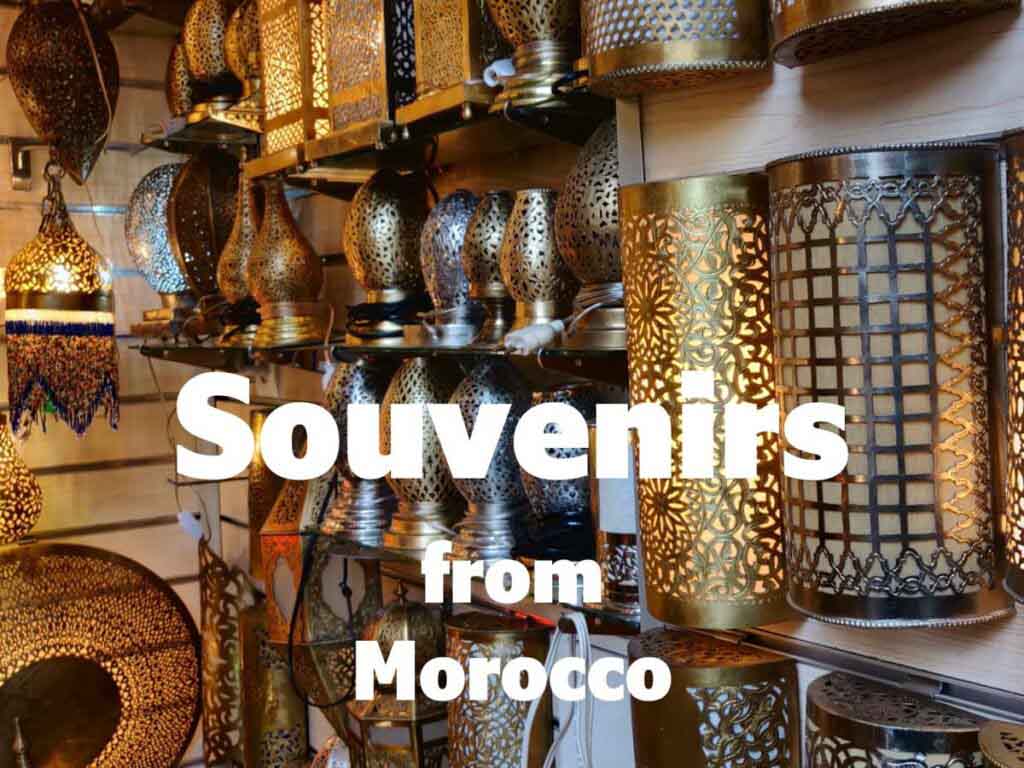I regularly get questions about what you can or should do when travelling to Morocco during Ramadan. So I thought, since Ramadan is coming up again, I’d write a post about it. I hope it answers all your questions, if not please get in touch!
What is Ramadan?
Ramadan is the 9th month of the Islamic calendar, the Islamic month of fasting, in which Muslims fast during the day, which means they do not eat or drink anything. At sunset, the fast is broken and the remaining meals are taken at night. The last meal must be eaten before dawn. Depending on the season, this can be as early as 04:00 in the morning. In addition to eating, many Muslims are also sexually abstinent during Ramadan, do not smoke, and try not to have bad thoughts, especially about other people.
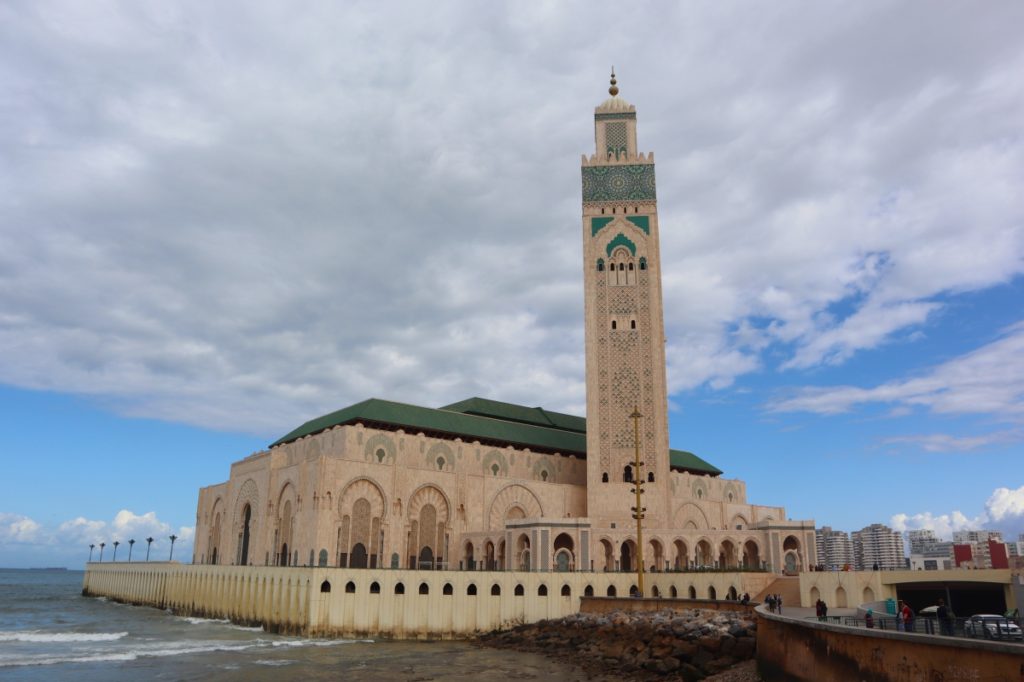
When is Ramadan 2024?
Ramadan is at a different time every year because the Islamic calendar is shorter than ours. The beginning shifts forward by about 10 days every year. The first day of Ramadan is linked to the sighting of the first narrow crescent moon after the new moon. Since Morocco is very far west compared to other Muslim countries, Ramadan often starts one day later here than in Oman, for example. This year, Ramadan is supposed to begin on 12 March. It then lasts for a month until the first crescent moon is visible again after the next new moon.
What is special about Ramadan?
Cookies
One special thing about Ramadan in Morocco are the typical Ramadan cookies that you can buy in many shops and that every family bakes themselves. The most famous one is probably Chebakia, a cookie with lots of spices that is fried in oil and then dipped in sugar syrup and sprinkled with sesame seeds. It’s super delicious but can get a bit too much after a few days. There are also many other cookies, some with date filling, some baked with almonds.
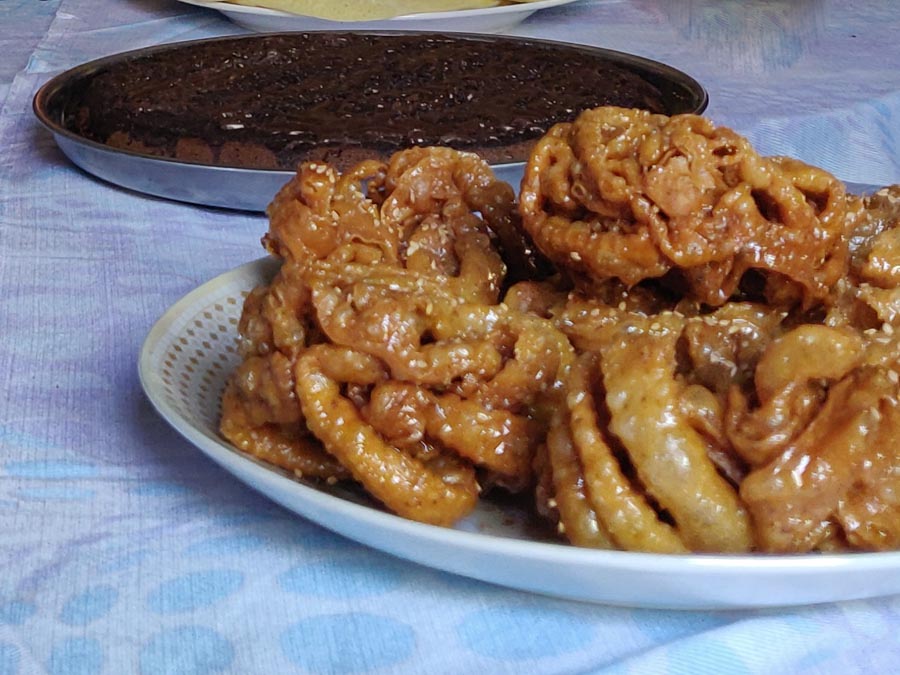
Iftar
The other special thing about Ramadan is the breaking of the fast, also called Iftar here in Morocco. For this, the whole family usually gathers around a fully set table with dates, milk, soup, and all kinds of pastries. There are often also fruit juices, boiled eggs and of course lots of Moroccan tea. The first bites after a day of fasting are traditionally dates with a sip of milk. Then the soup is drunk. And then everyone eats a bit. Dinner is eaten around midnight and a small breakfast-type meal before the last night’s prayer at around 4 am.
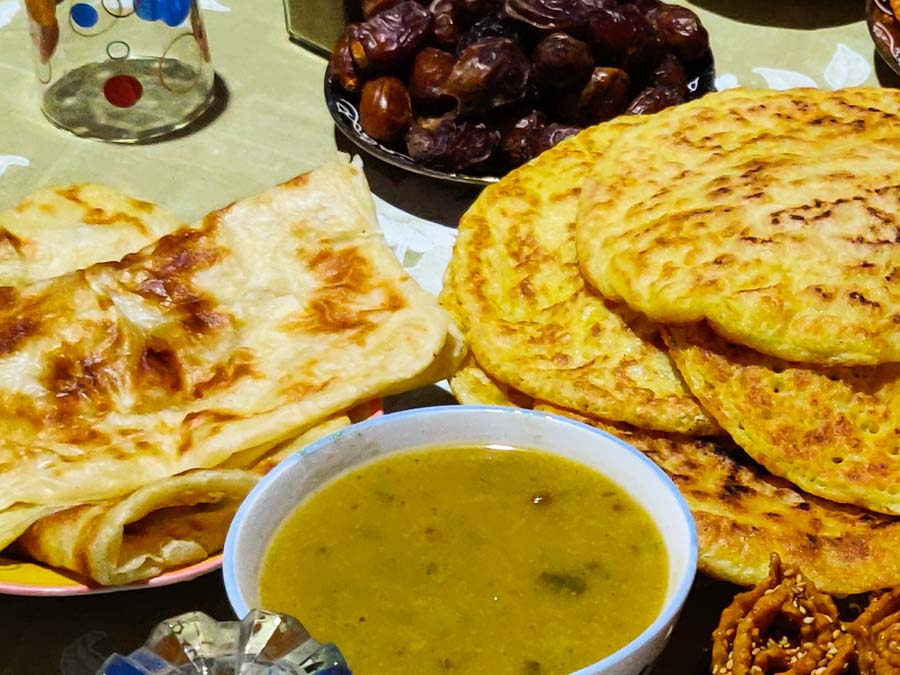
What is different during Ramadan?
Time
Morocco stopped changing back from daylight saving time to wintertime a few years ago. However, the time is changed for Ramadan, from the Sunday before to the Sunday after Ramadan ends. This year the clocks will be set back one hour on 10.3.24, from 3am to 2am. And then on 14.4.24 it will be set back to daylight saving time. You have to be a bit careful, mobile phone networks often continue to run with the old time for a few more days and even Google sometimes needs a few days to adjust.
Transport
Buses and taxis run pretty much normally during Ramadan in Morocco. The only difference I noticed is that the Supratours bus, for example, does not have a long lunch break. They only make short stops so that you can visit the toilet. So, if you are hungry, you either have to eat on the bus or hurry up at the stops. On the other hand, when travelling into the night, there is often a break for fast-breaking at sunset so that the driver can eat and drink something.
Contrary to all rumours, most Moroccans don’t mind at all if you eat in front of them. Children, for example, do not fast either, mothers are used to preparing food for their children during the day and also for them to eat in front of them.

Restaurants
Foreigners are not expected to fast, so various restaurants, especially touristic ones, are open. Some restaurants, especially those frequented by Moroccans, are closed during the day during Ramadan. However, they usually offer a large iftar buffet, where Moroccan tourists or local families meet to break their fast. The streets are often very empty and quiet at this time. The tourist cafés and restaurants are usually open all day and it is no problem to sit outside and eat or drink.
Did my blog help you?
Is my blog helping you?
Maybe you want to thank me by inviting me for a coffee!
Alcohol
While you can normally buy wine, beer and other alcoholic drinks in the big supermarkets and small alcohol shops, they are usually closed a week before and for the duration of the entire fasting month. If you are lucky, you can buy alcohol in Carrefour in the big cities as a foreigner though.
Sights
In my experience, the sights, for example in Marrakech, close around 2 or 3 pm. So, you have to plan your sightseeing program for the morning. If you know this and are prepared for it, it is no problem at all to go sightseeing in Morocco during Ramadan. There are also lots of interesting things to see that are not bound to any opening hours.
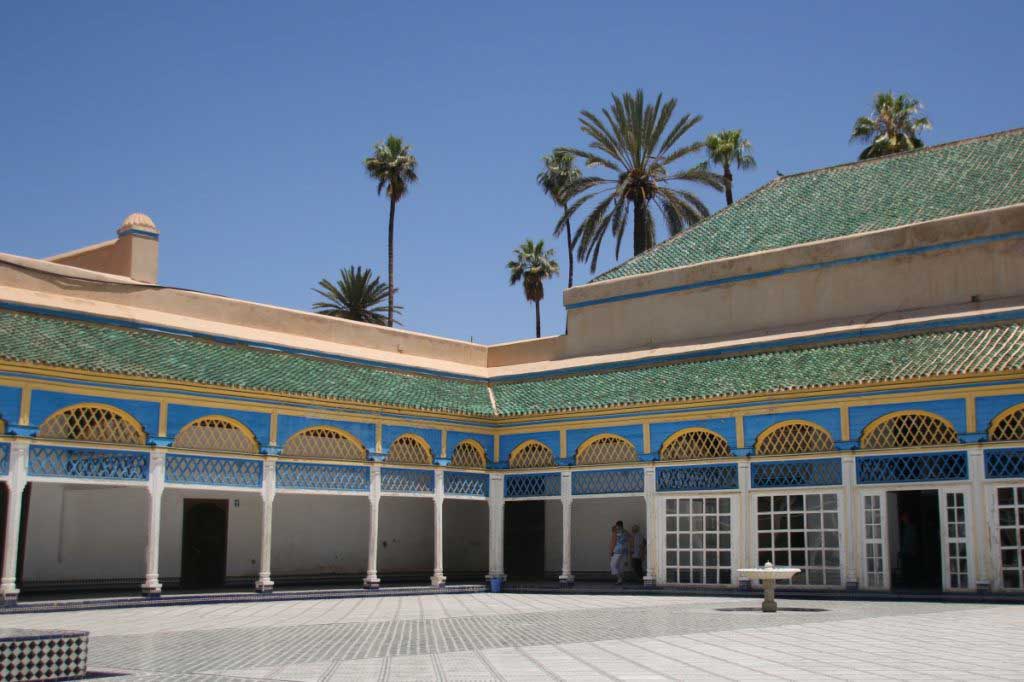
People
Regarding the Moroccans, you have to bear in mind that, especially in the first week, many people are latently bad-tempered or sometimes almost aggressive. Of course, this is more pronounced in summer than in winter, as the days are short in winter and therefore the fasting period is not as long. In addition, people are not as thirsty as in the sweltering heat of summer.
Towards the end of Ramadan, everything returns to normal and shortly before Eid al fitr, most people’s moods are back to normal or even a little better than usual. During Ramadan, you should dress much more conservatively than usual, i.e. show no skin. This shows respect for the culture and will certainly get you the gratitude of the locals.
Activities
Activities that involve more physical exertion, such as desert hikes or mountain bike tours, may be limited during Ramadan in Morocco. Day trips, camel rides or surfing courses, on the other hand, are usually not affected by Ramadan.
Conclusion: Travelling to Morocco during Ramadan can be a very interesting experience. However, if you are looking for a party holiday, it is better to come at a different time.
You prefer to let others do the planning? I offer itinerary planning for your trip to Morocco! You can check out the details here.
Please note that some of the links above are affiliate links and, at no additional cost to you, I earn a small commission if you make a purchase. That income goes to supporting this website and keeping it free for you and everyone else!

